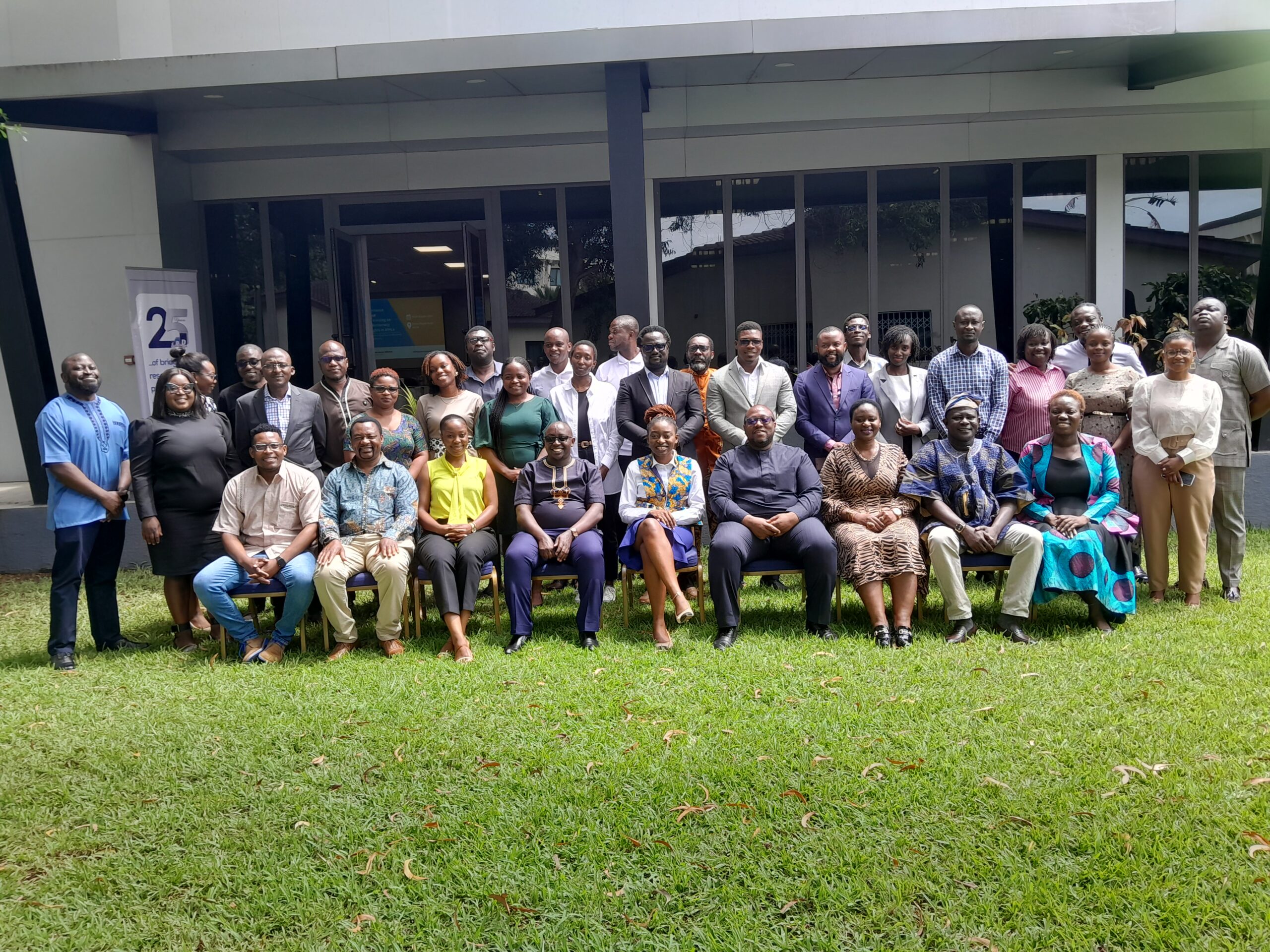
Accra, Ghana//-Data for Governance Alliance (D4GA) today opened a five-day second multi-stakeholder convening on Governance, Democracy and Human Rights in Accra, Ghana.
The convening which is underway focused on enhancing the capacity of pan-African Civil Society Organisations (CSOs) in the use of data to guide their advocacy and policy engagement activities.
It also deepened the existing platforms of the collaborations since the 2022 convenings; to work more progressively on the core mandates of the organs; and to co-create strategies that would facilitate the CSOs’ contributions to promote the work of the organs to African citizens.
The Accra convening being the second of the three convenings planned for 2023 is being attended by representatives of the African Union organs including the Political Affairs, Peace, and Security (PAPS), African Peer Review Mechanism (APRM), Economic Social and Cultural Council (ECOSOCC), African Court of Human and People’s Rights (ACHPR), and African Union Office of the Youth Envoy (AU-OYE) and several CSO representatives.
Democracy backsliding
In his welcome address, D4GA Program Manager for West Africa, Paul Nana Kwabena Aborampah acknowledged that there is a trend of democracy backsliding in Africa highlighted by multiple coup d’états.
According to him, the Africa Governance Report of APRM 2023 listed 18 military takeovers in Africa from 2003 to 2022, mentioning the recent ones in 2023 in Niger and Gabon, not forgetting the failed coup attempts in Guinea Bissau, the Gambia and the island nation of Sao Tome and Principe.
Changing climatic conditions
“The changing climatic conditions have impacted nations across the world, but lack of comprehensive strategies to respond effectively to the climate conditions has exposed our continent to disasters, and conflicts emanating mostly from the struggling for limited available resources, especially among pastoralist and the African large agricultural-based communities”.
He added that ineffective management of the continent’s economies by the various leaders with reports of corruption, nepotism, and state capture by a few elites have resulted in poor service delivery, a pool of unemployed youth with a consequent of drug addiction, increasing youth gun culture and the zeal to migrate through often dangerous and difficult routes.
Citizens in danger
Mr Aborampah continued: “The security of our citizens continues to be dangerous. The threats of violent extremism and acts of terrorism that were previously read from afar are now real and live with us on the continent, with the fear that more of the continent’s youth could be trapped to join the radical and extremist groups because our states seem to be absent in most of our communities”.
This plethora of challenges requires that African citizens join with the regional and sub-regional bodies to fight for an improved and better continent capable of withstanding the stocks of bad climatic conditions, creating jobs for the youth, and making the continent a better place to live.
African Union Agenda 2063
Touching on the African Union Agenda 2063 with its seven aspirations and 20 goals towards “The Africa We Want” which was adopted by the AU Summit and accepted the First 10-Year Implementation Plan in June 2015, he called CSOs to take a keen interest in the goals.
“It is upon the above realisation that the D4GA has adopted the various strategies to mobilise pan-Africa CSOs to proactively support the process and work closely with the AU organs towards the realisation of the African dream”, Mr Aborampah noted.
Keynote address
Delivering the keynote address, the Director for Advocacy and Policy Engagement at Ghana Center for Democratic Development (CDD-Ghana), Dr Kojo Asante observed that Afrobarometer’s Round 9 (R90 surveys offered valuable insights into the state of democracy on the African continent.
He said in the R9 surveys a significant majority of African citizens expressed support for democracy and accountable governance norms, institutions, and processes.
This indicates that two-thirds (66%) prefer democracy over any other system of government and even more reject non-democratic alternatives.


